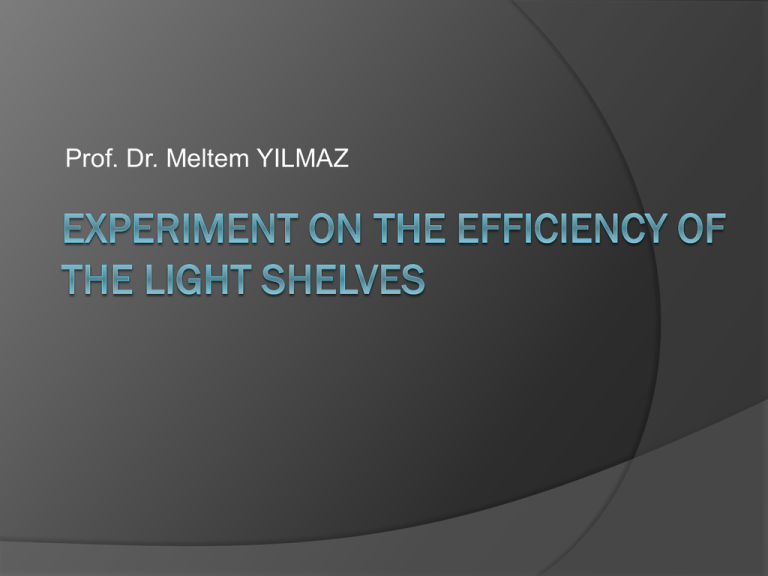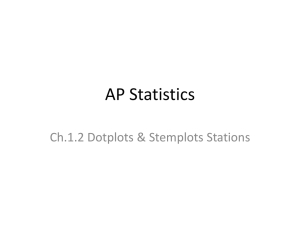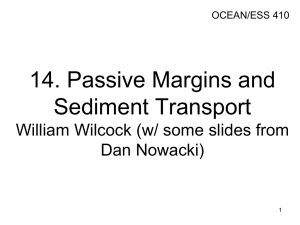TR_Yilmaz_Light Shelf Demonstration son part 1
advertisement

Prof. Dr. Meltem YILMAZ Introduction As a day light intake system, light shelves can be seen as more economical than the other systems. Their features are, their simplicity, ease of applying to interior and exterior surfaces, ease of dissembling can prove this theory. However according to many sources, beside economical and practical features of the light shelves, their light intake factors can be limited with the positions of the buildings and windows, dimensions of the openings and the shelves. the illuminance level differences with the use of light shelf 60 40cm; 53lux illuminance level (lux) 50 40 30 lux 95cm; 25lux 20 10 150cm; 7lux 0 0 20 40 60 80 distance (cm) 100 120 140 160 To research the efficiency of the light shelves, single storey small shed has been built. Shed has one door and one window which is lead to the south. Dimensions of the shed are; 240 cm x 500 cm x 220 cm and dimensions of the window are 90x100 cm. Construction of the demonstration shed Construction of the demonstration shed-2 Also the distance between floor and window is 80 cm. After construction of the shed, a light shelf has been applied to the window which is adjustable and its dimensions are 50 x90 cm. Measurements were taken in May in different hours as 10:00 am and 11:30 am due to determine effects of verticality and horizontality of the sunlight and try to provide correct results. Illuminance level has been measured with luxmetre and as intensity factor lux numbers were taken. Researches were studied with shelf and without shelf in different hours to search out the efficiency of light shelves. Also intensity of the daylight were measured on the floor from the different distances from 100 cm to 500 cm with light shelf and without light shelf in different hours. Without Light Shelf at 10 o’clock According to the test results; without light shelf, at 10 o’clock intensity level of the light from 100 cm to the window was measured as 1284 lx. From 300 cm distance intensity of the light has been measured as 480 lx, and from 500 cm distance, intensity of light has been measured as 179 lx.These measurements explain that, intensity of the light decreases seven times from 100 cm to 500 cm without using light shelf. Without Light Shelf at 11.30 o’clock To determine the vertical effect of sun light, also at 11:30 same tests have been done. From 100 cm distance, 2010 lx has been measured. From 300 cm, 704 lx and from 500 cm 258 lx have been measured. With Light Shelf At 10 o’clock These, measurements have been retaken with the horizontal positioned light shelf. Dimension of the light shelf was 50x90 cm and it was made of steel with bright surfaces to take in and reflect more light. According to measurements with the light shelf; At 10 o’clock from 100 cm distance 1969 lx has been measured, which was approximately % 50 more than the (without light shelf) measurements. From 300 cm 662 lx and from 500 cm 245 lx have been measured. With Light Shelf at 11.30 o’clock To determine the vertical effect of sun light, also at 11:30 same tests have been done. From 100 cm distance, 2310 lx has been measured. From 300 cm, 922 lx and from 500 cm 345 lx have been measured. In the tests that are made at 11:30 o’clock; From the 100 cm distance, 2310 lx illuminance level has been measured( 2010 lx without light shelf). From the 300 cm distance 922 lx (without light shelf 704) and from the 500 cm distance 345 lx (without light shelf 258 lx) have been measured. Results show that although the vertical position of the sun, light shelf can take more daylight. Illuminance level with and without light shelf Variation Factors at 10 o’clock Illuminance level with and without light shelf Variation Factors at 11.30 o’clock That means after 300 cm, effects of light shelf have been decreased. Reason of this, due to opening sizes, may be number of openings and dimension of the light shelf. These measurements show that although decreasing of illuminance level after the 300 cm, even a one window and a light shelf, intensity of the sun light seems enough to provide distinctive enlightenment. To sum up; when the spaces and their openings are designed with the optimum dimensions and ratios, light shelves can be efficient for the extra lightning. Test results show that; especially places where are close to the window and light shelf, are taking more light than the other places in the room. However, when the narrow shape of the demonstration building and small window are considered, especially after 300 cm distance, light intensity decreases. This can be considered as a good result, because 300 cm is more than the half of the building, and 500 cm is the end part of the room. As a result, light shelves can be very economical and effective daylight intake systems; if the position of the building leads to the correct sun position and if the buildings and openings are designed with optimum dimensions. THANK YOU VERY MUCH…











